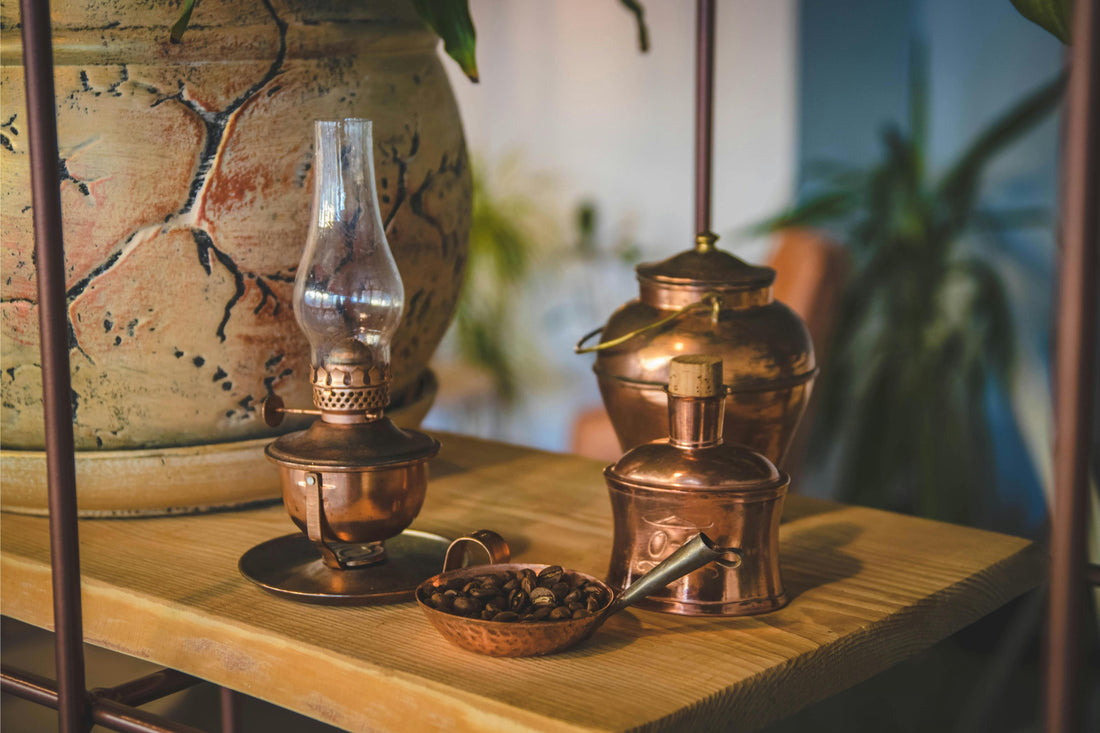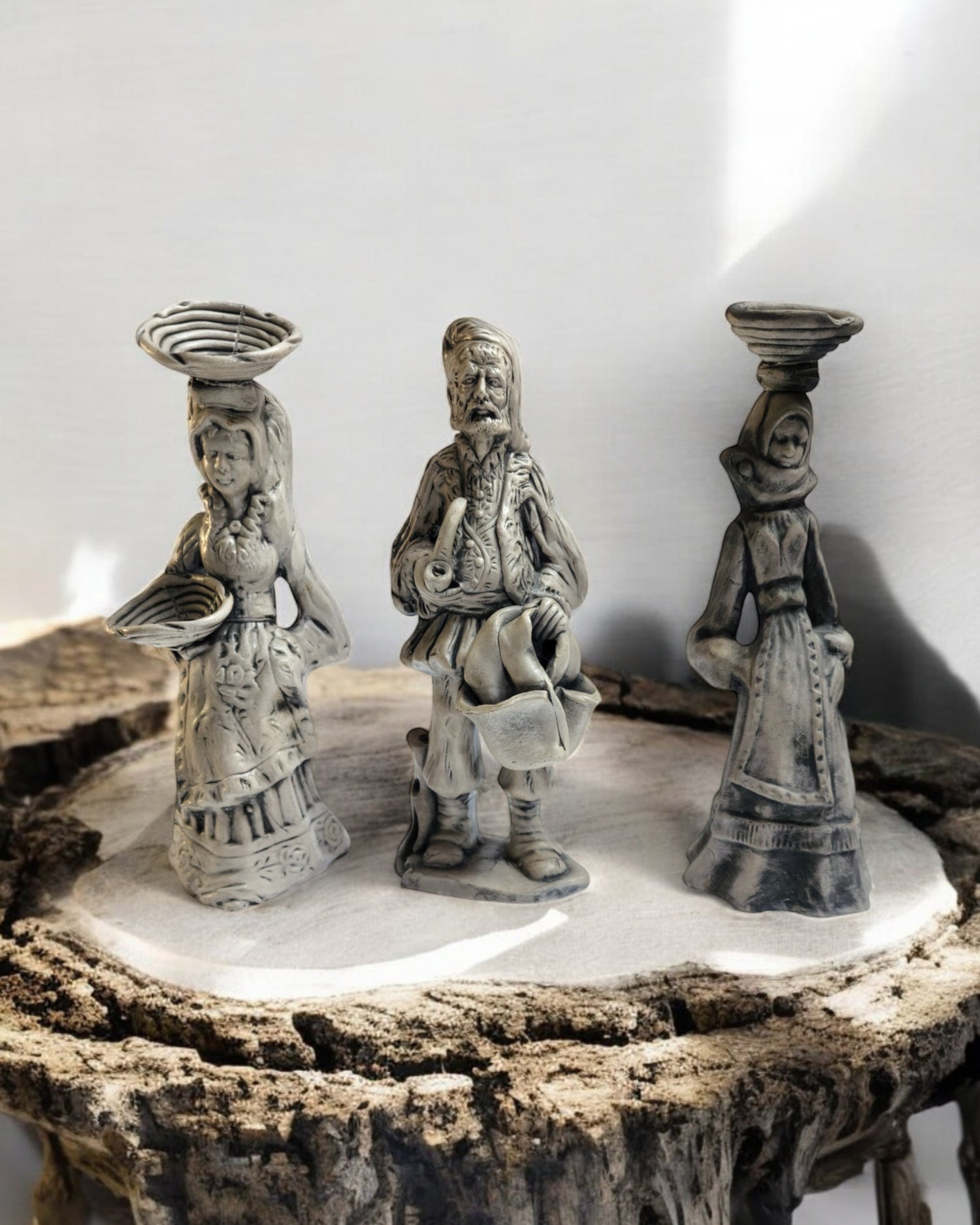
The Art of Collecting Italian Antiques
Share
Collecting Italian antiques is a rewarding and enriching hobby that offers a unique connection to Italy's rich cultural and artistic heritage. From Renaissance furniture to Venetian glass, Italian antiques encompass a wide range of styles and periods, each with its own distinctive charm and historical significance. Mastering the art of collecting requires knowledge, patience, and a keen eye for detail. This guide explores the various styles, the importance of provenance, and tips for building a valuable and cherished collection.
Understanding Italian Antique Styles
Italian antiques come in a variety of styles, each reflecting different periods of the country's history. The Renaissance period, known for its cultural revival and artistic achievements, produced furniture and decorative arts characterized by elaborate carvings and classical motifs. Baroque and Rococo styles, which followed in the 17th and 18th centuries, introduced more opulent and dramatic designs, often incorporating gilded details and luxurious materials. The Neoclassical and Empire styles of the late 18th and early 19th centuries emphasized symmetry, proportion, and classical motifs, reflecting a return to the simplicity and grandeur of ancient Rome and Greece.
The Importance of Provenance
Provenance, or the history of ownership, is a crucial factor in determining the value and authenticity of Italian antiques. A well-documented provenance can add significant value to a piece, providing a historical context and verifying its authenticity. Provenance can include records of previous owners, exhibition history, and any documentation or certificates that accompany the piece. Collectors should seek out reputable dealers and auction houses that provide detailed provenance information to ensure they are purchasing genuine and valuable antiques.
Tips for Building a Collection
Building a collection of Italian antiques requires careful planning and a strategic approach. Here are some tips to help you get started:
- Research and Education: Take the time to educate yourself about different styles, periods, and types of Italian antiques. Read books, attend lectures, and visit museums to gain a deeper understanding of the pieces you are interested in collecting.
- Set a Budget: Determine how much you are willing to spend on your collection and stick to your budget. Keep in mind that high-quality antiques can be a significant investment, so it's important to prioritize pieces that offer the best value and potential for appreciation.
- Start Small: Begin your collection with smaller, more affordable pieces such as ceramics, glassware, or small furniture items. As you gain more experience and confidence, you can gradually move on to larger and more valuable items.
- Focus on Quality: Quality is more important than quantity when it comes to collecting antiques. Look for pieces that are well-made, in good condition, and have a clear provenance. Avoid items that show signs of extensive damage or poor restoration.
- Build Relationships with Dealers: Establishing relationships with reputable dealers and auction houses can provide valuable insights and access to high-quality pieces. Dealers can also help you verify the authenticity and value of items you are interested in purchasing.
- Attend Antique Fairs and Auctions: Antique fairs and auctions are excellent places to find unique and valuable pieces. Be prepared to do your homework before attending, and don't be afraid to ask questions or seek advice from experts.
- Document Your Collection: Keep detailed records of your collection, including photographs, provenance information, and any certificates or documentation. This will help you track the value and history of your pieces and provide important information for insurance purposes.
Caring for Italian Antiques
Proper care and preservation are essential for maintaining the beauty and value of your Italian antiques. Different materials require different care techniques, so it's important to understand the specific needs of each piece in your collection. Here are some general tips for caring for your antiques:
- Climate Control: Keep your antiques in a stable environment with controlled temperature and humidity. Avoid exposing them to direct sunlight, as this can cause fading and damage to materials such as wood, fabric, and paper.
- Cleaning and Maintenance: Regularly dust and clean your antiques using appropriate products and techniques. Avoid using harsh chemicals or abrasive materials that can damage delicate surfaces. For valuable or fragile items, consider consulting a professional conservator for cleaning and maintenance.
- Handling and Display: Handle your antiques with care, avoiding excessive movement or pressure on delicate parts. When displaying your collection, use proper supports and mounts to prevent damage or stress to the pieces. Avoid overcrowding displays, as this can increase the risk of accidental damage.
- Insurance and Appraisal: Protect your collection by insuring it against theft, damage, or loss. Regularly update the appraisals of your antiques to ensure they are adequately covered. Keep detailed records of your collection, including photographs and provenance information, to assist with insurance claims if necessary.
The Joy of Collecting Italian Antiques
Collecting Italian antiques offers a unique and rewarding experience, allowing you to connect with the rich cultural and artistic heritage of Italy. Each piece in your collection tells a story, offering a glimpse into the past and the lives of the people who created and used these items. The joy of collecting lies in the discovery and appreciation of these beautiful and historical objects, as well as the knowledge and expertise gained along the way.
Conclusion
The art of collecting Italian antiques requires knowledge, patience, and a passion for history and craftsmanship. By understanding different styles, the importance of provenance, and the best practices for building and caring for a collection, you can create a valuable and cherished assortment of Italian treasures. Whether you're an experienced collector or just starting out, the journey of collecting Italian antiques offers endless opportunities for discovery and appreciation.
